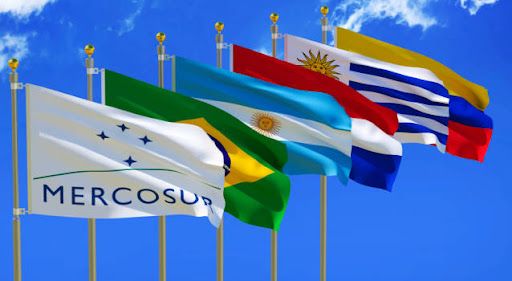Mercosur, whose associated states are Chile, Colombia, Ecuador, Peru, Guyana and Suriname, operates 80% of its regional trade free of tariffs.
So far, Mercosur is negotiating a free trade agreement with the European Union. On this, on June 28, 2019, the parties reached an agreement in principle that is not yet in force.
Mercosur was established in March 1991 with Brazil, Argentina, Paraguay and Uruguay as full members or the “Member States”.
Then, in July 2012, the founding members (except Paraguay) admitted the Republic of Venezuela as a full member of the bloc, and in December 2013 Paraguay recognized Venezuela’s status as a full member.
But on December 2, 2016, the condition of full member of Venezuela was suspended by the other Member States, after it was considered that it had not implemented the Mercosur regulations in the four-year period established, in accordance with the commitments assumed in 2012 in relation to their entry into the block.
On August 5, 2017, the founding members extended Venezuela’s suspension in compliance with the bloc’s democratic clause.
Mercosur
Furthermore, in July 2015, Bolivia signed a protocol to become a full member of the bloc, which remains subject to ratification by the national congresses of Brazil, Paraguay and Bolivia.
Once approved, Bolivia will have a four-year period to gradually adopt Mercosur regulations.
In the framework of the Mercosur Treaty, the founding members of the Mercosur agreed to:
- Establish a common market with free circulation of goods, services and factors of production by eliminating or significantly reducing, in some cases over a period of years, import duties, tariffs and other barriers to trade between members.
- Establish common external tariffs for trade with non-members.
- Adopt a common commercial policy towards third countries and blocs.
Other regulations
With the objective of transforming the region into a customs union, in December 1994 the founding members of Mercosur agreed to implement a common external tariff.
The common external tariff regime entered into force on January 1, 1995; however, each member was allowed to exclude certain items from the regime.
The exceptions period has been extended to allow Argentina and Brazil to maintain their list of exceptions until December 31, 2021, Uruguay until December 31, 2022, and Paraguay until December 31, 2023.
Members have not yet fully harmonized non-tariff barriers and tariff exceptions and national trade regimes to advance a policy of no border controls.
Other significant aspects of the Mercosur agreements that require coordinated trade policies have not been fully implemented.
![]()

